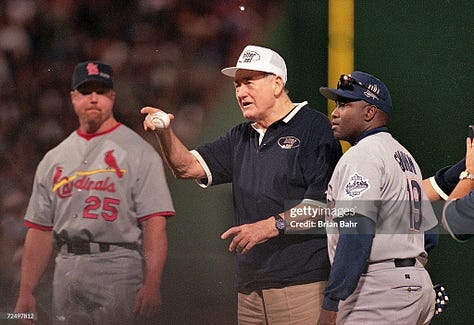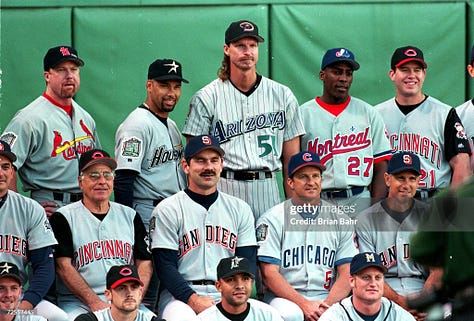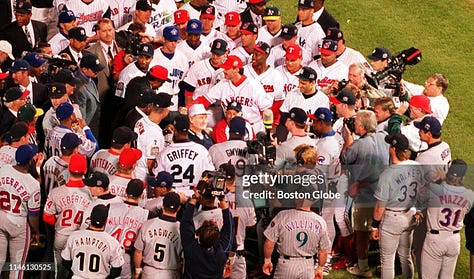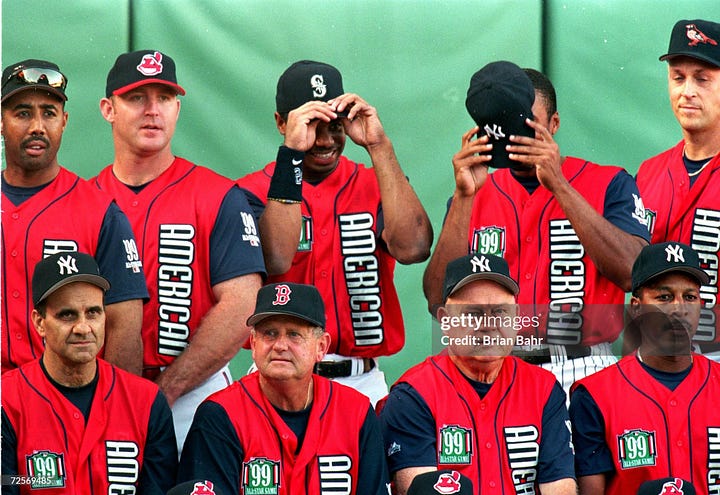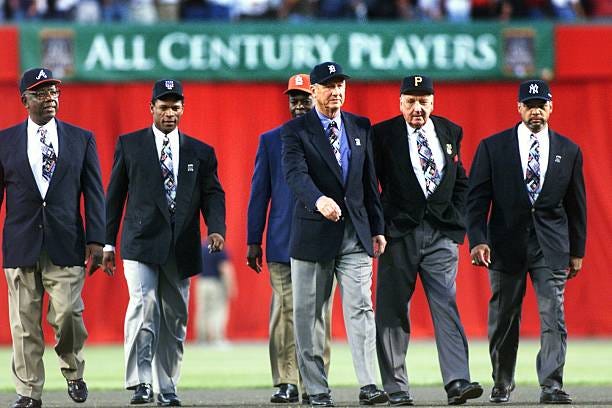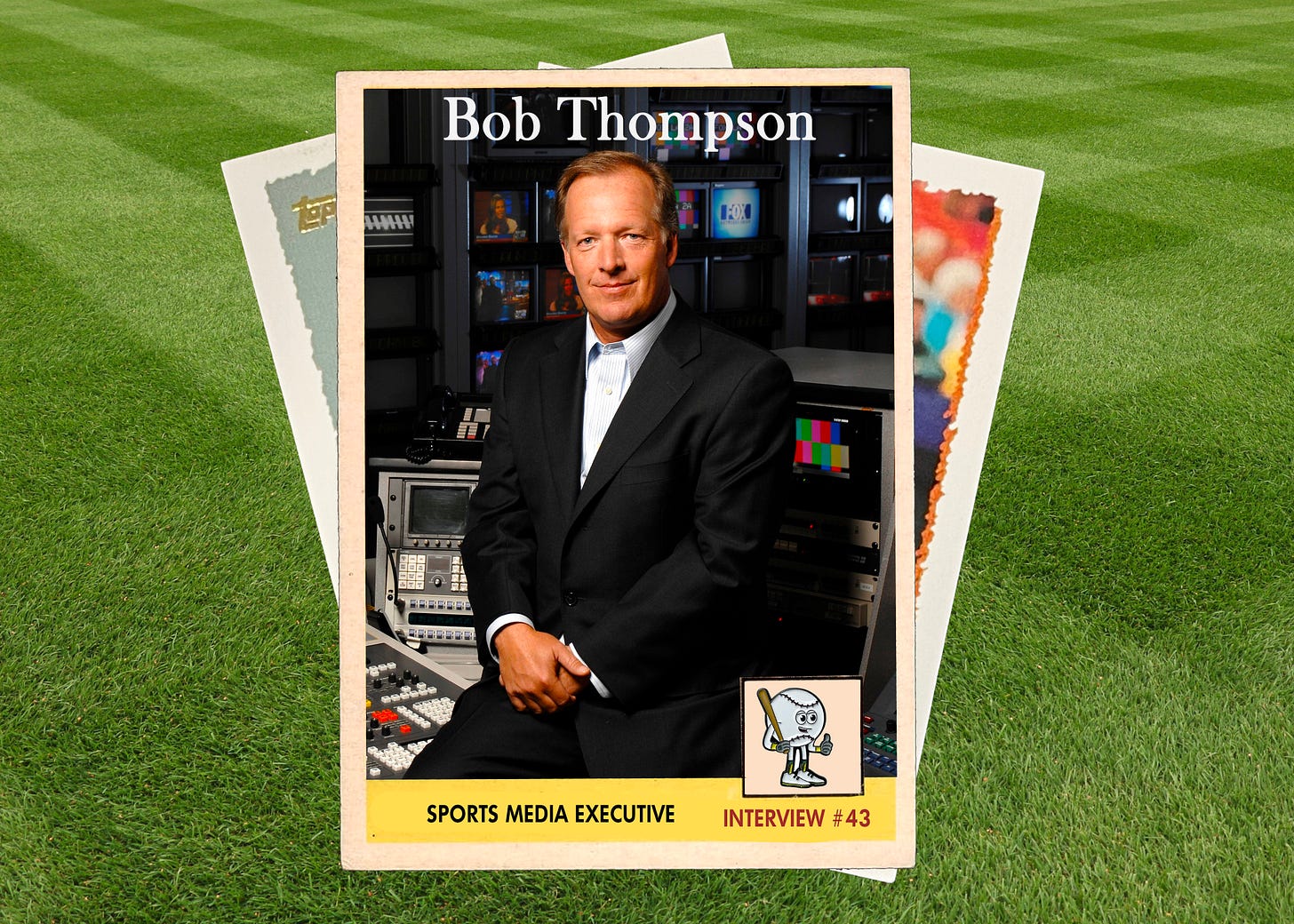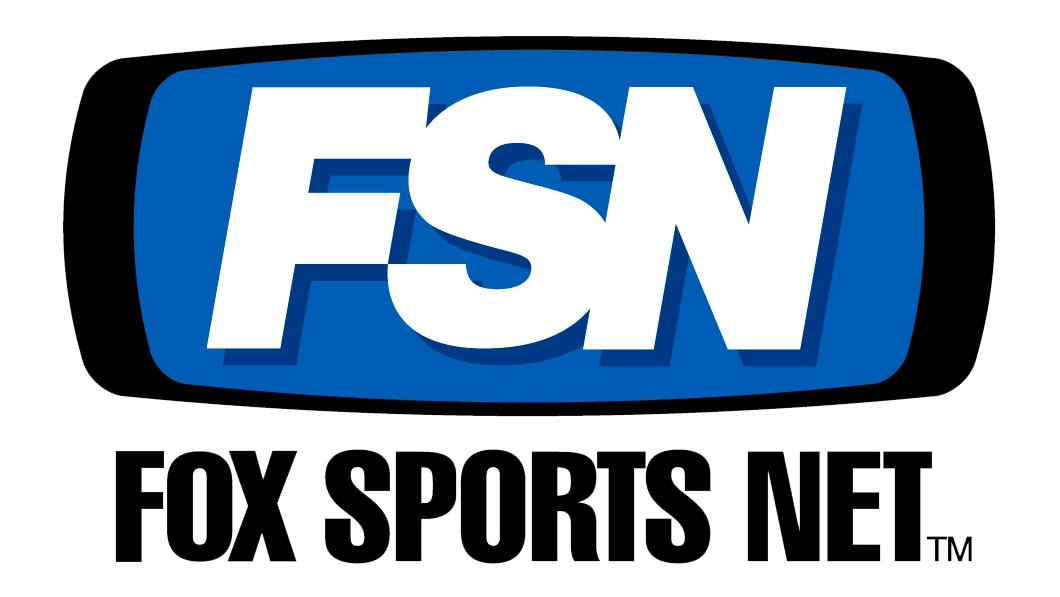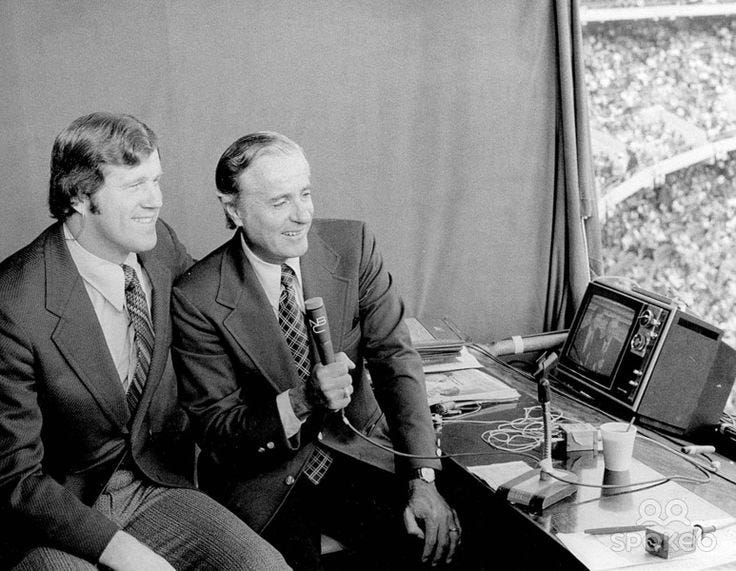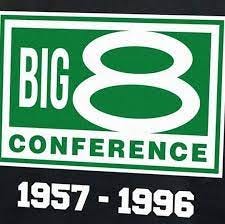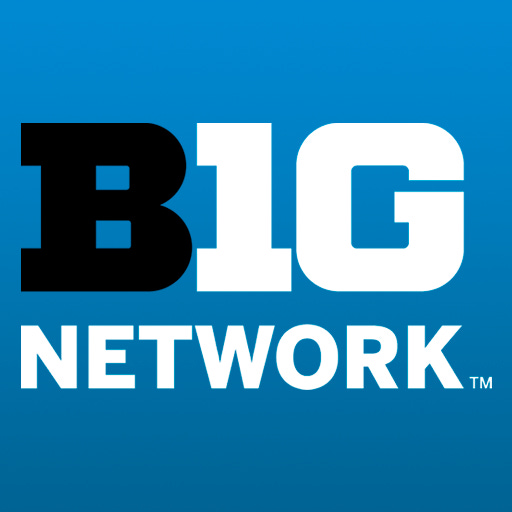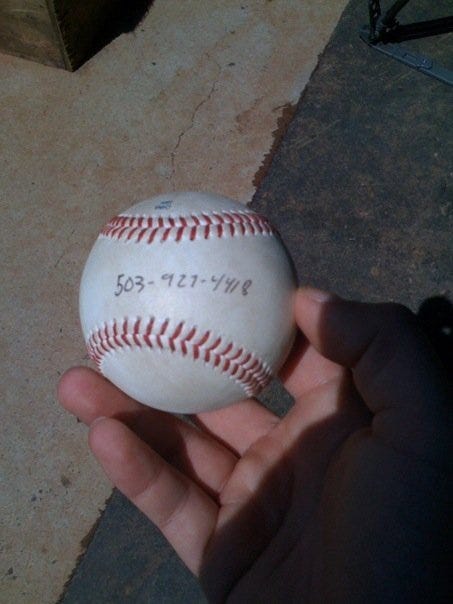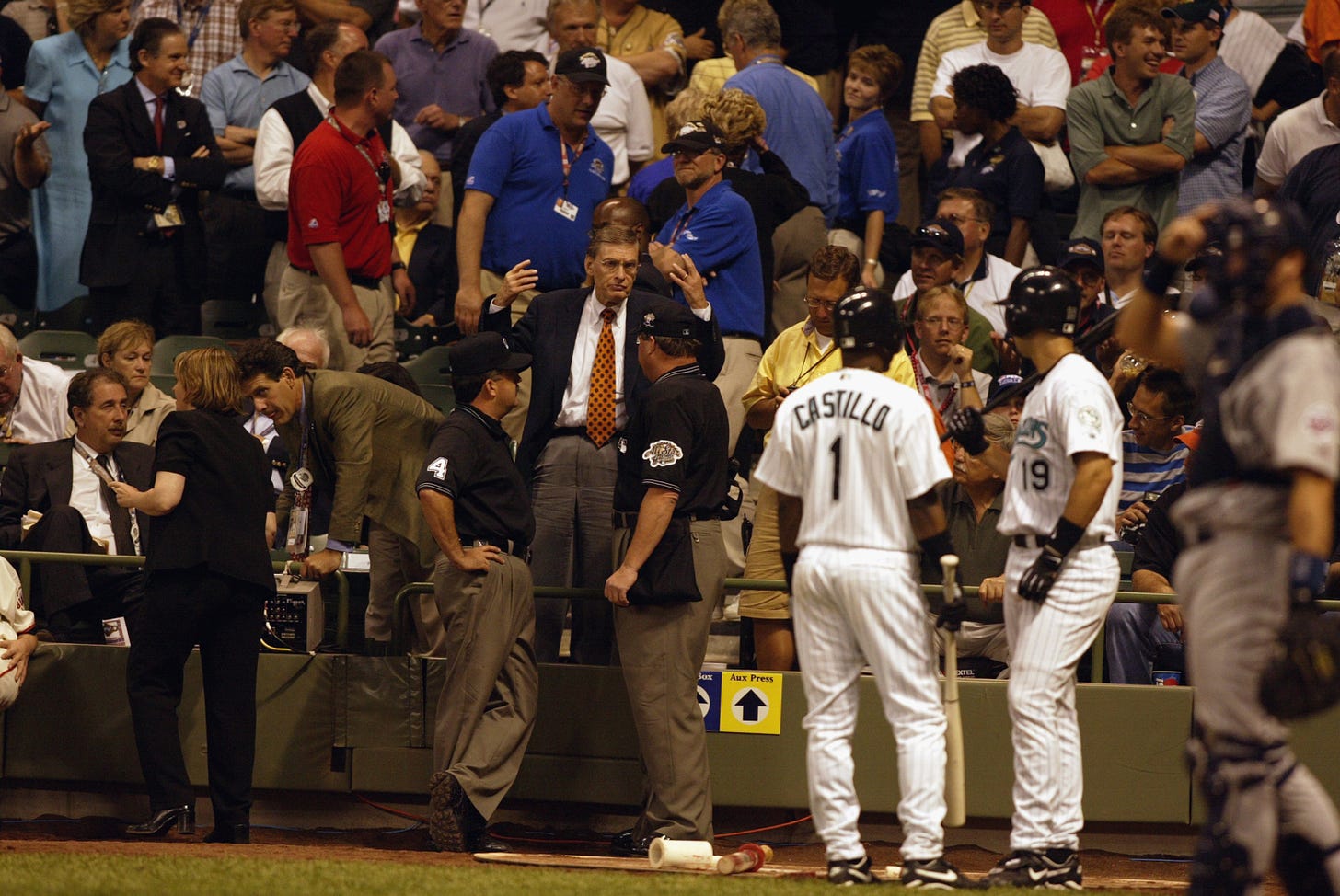Interview #43: The Sports Media Exec
Bob Thompson, retired Fox Sports president who negotiated over 200 media rights deals
Intro
Bob Thompson had an incredibly impactful career on sports fans. After graduating from the University of Oregon in the early 80’s, his first job was selling cable subscriptions. Back then, with MTV just hitting the scene, subscriptions sold themselves. He eventually worked for early regional sports networks before ultimately joining Fox Sports and ultimately getting promoted to the president of the company. His job was demanding with an exhausting international travel schedule (face to face meetings back before Zoom was a thing), but also highly rewarding (what other job gets you great seats to the World Series and Super Bowl?).
He chose to retire and enjoy some peace and quiet in 2009 and now does occasional consulting gigs in between rounds of golf. I came across Bob when I was buying tickets to the 2024 Pac-12 baseball championship at Scottsdale Stadium in May. He had a post on Twitter saying he had two free tickets he couldn’t use so I messaged him and got to go see the final Pac-12 event end in a dramatic walk-off win for Arizona.
His Twitter account is also great to follow to get inside and rational insights to sports media news that is almost non-stop these days: @rltsports
We talked about his start in the business, his career path, the state of sports broadcasting and of course his #1 love, baseball.
Getting Started
I read up on your career a bit. So you got started in TV right away, right?
Yeah, right out of college. About six months after I got out of college, I hooked up with some friends of my father who were starting a cable system in a suburb of Portland. I went to work selling cable TV door-to-door about six weeks after MTV went on the air.
So it sold well, then?
Oh yeah. I wasn't selling anything. I was just running around signing people up. My selling skills weren't sharpened by doing that because, literally, the construction folks would say, alright, we turned on this section, so it would be like an eight-block section. I'd go out and put door hangers on everybody's doorknob and go back to the office and wait for them to call. That was about it.
I did that for about a year, and then the company was bought and I was promoted to oversee the sales and marketing for the whole state. And then it just kind of went on from there.
When did you get started with sports television?
With the cable company, I moved from Portland to Miami to Phoenix to Houston to Washington, DC in eight years. That company got sold in 1988 and I was given an opportunity to stay and move to Philadelphia with Comcast, but some friends of mine who I had known from my time in Texas were starting a regional sports network in Denver. I love Denver, and they offered me the job, and so I went, gladly, and moved from Washington, DC to Denver in November 1989. I was the first general manager at the network in Denver.
Were there a lot of regional sports networks in 1989?
Maybe a dozen. They were bigger on the East Coast, where cable kind of sprung up well before the West Coast. After I started Denver we quickly launched one out of Salt Lake, Kansas City, St Louis, Indianapolis, Minneapolis. Within two years we were growing like gangbusters and coincided with a lot of the local TV stations getting out of the sports business, and the fact that the RSNs could actually pay them significantly more because of the subscription revenue we had along with ad revenue. So it was growing pretty good back then. Those were the go-go years up through the late 90s, early 2000s through 2012. Things have started to take a little bit of a turn for the worse for a variety of reasons.
What did you have for content back then?
It was all local. Like, out of Denver we started with 25 Denver Nuggets games, that's all we had, and we were adding about 5 a year. Then the Rockies came, then the Avalanche came, so by the time I was out of there, we had a full season of professional sports. We also dabbled with some collegiate stuff, some Big 12 football, some WAC football, University of Denver hockey, things like that. So we were able to put a pretty good package together and most markets had at least one, if not two, professional teams at that time.
Did you think at the time when you got started that they would grow to be what they are, which is multibillion dollar revenue entities?
When I was a cable operator, I saw how much the local fans liked the RSNs. When I ran some cable systems in Texas, primarily Houston and Dallas, the channels then were pay services, like $8-9 a month. One of the things that we did in Denver was we quickly switched all of the RSNs over to a basic cable model so that they were going to 100% of the people. What we found with the pay services, people would sign up for a baseball season and then drop it because they didn't want to watch basketball. We were getting take rates of 20% tops, 15 to 20% at $8 a month and you have to split that with the cable operator. Our economics weren't working, and so we convinced the cable operators to flip them to basic services as a kind of a companion to ESPN and that was where it kind of really took off.
It was the mid- to late-1990s when all the Fox Sports networks came on, wasn’t it?
Liberty was the owner of the group I was with originally and we had nine RSNs. Fox bought half, and then they bought the other half real quickly, in ‘95. We went on a tear and started launching RSN's everywhere. The Phoenix one was one of the last to launch, Phoenix, San Diego were kind of late to the party, but once the Diamondbacks came here, and then ultimately the Coyotes on top of that, we went all in on Phoenix as well. Which didn't turn out to go so well in the end, but for a while it was a very good business, very profitable business and one of our most highly viewed RSNs out there.
Fox came in and we flipped everything from Prime Sports to Fox Sports and at one point I think we had 22 separate setups and more than 70 contracts with NBA, NHL or MLB teams, which is what I spent a good chunk of my time doing besides getting networks going, was negotiating the rights deals with the teams, or collegiate conferences, things like that. I got to spend all the money.
Then you became the president at Fox Sports?
Yeah, I ran all the RSNs for a number of years, then they added the national cable sports networks, we had Speed Channel, we owned part of Golf Channel, Outdoor Life, Fox Soccer, those type of things. They put me over those as well as the international networks. We had stuff in Latin America, Europe, Middle East. 1999 they made me president of both groups, domestic and international.
I hung around ‘til 2009 and I was just burnt out on travel. I was traveling every week for years and years and I got tired of it, so I quit. I stuck around with Fox as an advisor for five years and I also opened up my own little boutique consulting firm, which is me and my cell phone and a computer, and the three of us take on business occasionally here and there for teams or collegiate conferences. I do a lot of litigation work as a witness for people in the broadcasting and/or sports industry. So I work just enough to have an excuse why my golf game sucks, but not too much that I'm busy or have to travel very often. I love this Zoom stuff. If they would have had this back when I was working, I'd probably still be working.
From like 1983 on, I just traveled incessantly and it used to be, you'd go you get on a plane, go to a meeting. Now you don't do that anymore. It would have been infinitely easier on my mental state and my home life if I wouldn't have had to get on a plane every Sunday night and go somewhere. And in the sports world, so much happens on the weekends and I'm expected to be at a lot of those things, and so not only was I traveling for work during the week, but then a lot of times I had to go somewhere on the weekend to some sort of event. And then you throw the international travel on top of it, that was like the coup de gras. Nobody should sleep overnight on airplanes for any significant number of days a year. It's just not right.
So you were involved in negotiating a lot of the deals. What was the first one that was a billion dollars a year? Was it for the Angels?
The Angels or the Dodgers, one of the two. I think probably the Angels. I don't think I ever did one for a billion a year. I did several that were several billion over the term. For a while, the Mariners were the top paid team, certainly of our teams in total because we had all their games. We paid the Dodgers a fair amount, but we didn't have all their games to begin with, so the total wasn't the same, but on a per-game basis it was pretty high. I did most of those deals.
About 25-30% of our revenue would come from advertising. The rest came from subscription fees from the cable operators, satellite, YouTubeTV, those type of people. That was the biggest chunk. Other than ESPN, the RSNs are the second most expensive services out there. Which is one of the reasons they're in trouble.
Yeah, they're always getting dropped or blacked out.
Exactly. Always a battle of some sort. Didn't used to be that way. Everybody was a little saner back in the early 2000s. I think everybody, and that's the cable guys, the RSN guys, the teams, everybody got a little greedy and the prices got out of whack and everybody kind of thought it would just go up forever. Well, nothing goes up forever. And certainly the RSN business isn't any different.
When did cable networks start moving the RSNs to premium subscription tiers?
When I started, the big cable systems had 35 channels. Then you went up in multiples. At one point we were we were in 100% of the homes, then they started what they called “broadcast basic”, which is for people who just wanted a reception service and then they slapped some home shopping channels on there as well. The tiering came about in the late 90s. But even then, we required a minimum of 80% penetration to all of your cable subs. Then, as the technology advanced and they were able to slice and dice and make content-specific tiers, you’d have a sports tier or a news tier or entertainment tier, they started slicing and dicing things and that never really worked.
But as the prices got bigger, they would take the more expensive channels and bump them up to a more expensive tier so that their costs were covered. And that's where you started to see it drop. And lately, just in the last year, Comcast has been putting people on a tier that's not even 30% penetrated. Not only have the RSNs lost half their subscribers (when) people just dropped cable, now even among those that have it, you have nowhere near 100% getting it. It's a much smaller number and a lot of it depends on who your cable operator is, but certainly the numbers have taken a tailspin, and to be quite honest, at this point, don't look to be slowing down. They're still falling precipitously and quickly, even more quicker than people thought.
I always sort of thought naturally it’d sort of cap out at 50 million, where at one point it was 108 million was the most subscribers we ever had for a cable service. And I mean it's closing in on 50 fast, but 50 million homes is still a lot of homes. The question is what are your costs and what do you charge for it and will people, the middleman or the suppliers, agree to that and distribute it? They're afraid they're going to have to jack their customers and they’ll just quit, which is what happened. I think people got tired of their cable bills going up every year.
So what I've noticed, interviewing people about baseball mostly, but what helped get them into baseball is because it was available. It was always broadcast, or if they had basic cable, it was always on. So 162 days a year, you could have it on if you wanted it, even if you're not paying attention all the time. Now, even the diehard fans have to buy Apple TV, Roku, Peacock… they have to subscribe, they're blacked out half the time, you have to have the national package. Do the leagues care that it's not as easy to be a casual fan anymore?
I think they do. Major League Baseball struggled with television for quite a few years. For me, growing up, there was one game a week on Saturdays (with) Tony Kubek and Curt Gowdy. I couldn't get any other baseball where I grew up in Portland. Cable comes in, now where I'm living and going to college, I can get Giants and A's games from the San Francisco stations. I can get every Atlanta Braves game, I can get almost all the Cubs games and a lot of the White Sox games. That was like the Superstation Era and that created a whole other set of issues that baseball had to deal with.
And now in the chase for dollars, what they've figured out is the RSNs aren't going to continue to pay them what they've been paying, so they're looking to replace that through national packages, and that means you're going to see, last year they had the Peacock deal, this year it's with Roku, and they've got the Apple deal that's kind of an exclusive Friday night package. Those type of things bring in some money that the teams rely upon because their local revenue is probably not going to be as strong as it once was. And again, the fan has to become very adept at finding where your games are.
I was telling somebody the other day, we're kind of at an inflection point in the television world. You're switching from what was strictly kind of linear television, the broadcast networks, the cable networks, and they kind of did the schedule. You watched when they told you you should watch, unless you had a DVR, and that was it. And then streaming came in, you’re your own programmer. You can watch it whenever you want. There's not a channel guide, there's just a bunch of programming tiles, you just press on which one you want. So we've kind of gone halfway to streaming, but 50% of the people are still getting their TV the plain old-fashioned way. So you have to be in both markets as a league in order to maximize your money and you have to maximize your viewership. You've got to go to the streaming, where the people who have never had cable or didn't want to pay for cable anymore, that's where they're at. And then you got the the legacy viewers on the cable side, who probably won't switch ‘til they die.
I've still got a full load of DIRECTV and I’m subscribed to two or three streaming services; I'm not even sure, I probably should check that out. I'm kind of in the middle. But you, as a content seller, like Major League Baseball, you've got to be in all those pools where your potential viewers are, otherwise you'll lose fans. And I think that they've figured that out. Unfortunately, it's the fan that's going to get hit the hardest, and that's going to be in the wallet.
Unfortunately, it's the fan that's going to get hit the hardest, and that's going to be in the wallet.
Yeah, that was what was coming up. It's expensive to go to games if you live in a market, but usually you’d be able to casually watch a game. Obviously, things have changed, now they're paying $12 a month for Netflix or whatever it is now, or ESPN+, if they're sports fans, but for the Diamondbacks, you have to specifically pay like $24 a month locally to stream them locally. That's not something a person who goes to one Diamondbacks game every three years is going to do. Whereas if it was available and free, like the Suns and the Coyotes were over-the-air last year…
The Suns had both. They had over-the-air and you could subscribe to a streaming service as well. I don't know why anybody would when you could watch them on Channel 3. The Diamondbacks weren't able to get a deal. My understanding is he (Diamondbacks team president Derrick Hall) talked to a lot of people, but they couldn't come to an agreement, so he cut a one-year deal with the cable guys and I still get the games on DIRECTV, it's just on its own channel. I don't know why they weren't able to figure something out. Interestingly enough, another entity that lost their RSN, the Rockies, they don't have a deal either and nor do Padres. They all got the rug pulled out from them last year. Baseball backstopped them last year to ensure that they got at least 80% of their rights fees. This year, they're on their own. So all three of those teams are probably taking it in the shorts pretty good right now.
Especially the Padres with their payroll.
Yeah. And of those three teams, their deal was by far the biggest.
As Bob got talking about his career, I was jotting notes down frantically trying to listen and make sure I’d remember to go back and ask about certain things. Things that seemed minor to him in the grand scheme of his impressive career but to me were huge in the impact it had on how we view and consume sports. When he started out, cable was a brand new technology and by the time he retired, we have satellite, streaming, on-demand, social media, and I’m sure I’m forgetting other things.
He just casually mentioned how many places he moved to in a short span in the 80’s and probably singlehandedly kept Mayflower moving trucks in business. As he went through the progression of sports media, I was there every step of the way. I remember in the Bay Area in the 90s we had SportsChannel on like channel 20 and it would be scrambled half the time, so we’d sometimes get Giants games in or Sharks games… try following a hockey puck when there’s fuzzy marching ants tracking across the screen. Then we had Fox Sports Bay Area for a long time and that was the sweet spot. Everything was there, Giants, A’s, Sharks, Warriors, college, The Best Damn Sports Show Period. Now I have no cable subscription as I actively avoid First Take.
He’s right that everyone got greedy, and it seemed like few were planning for the inevitable RSN bubble bursting. Salaries and revenues were skyrocketing on the backs of national and local TV rights, and since no one wants to take a pay cut, they have to find ways to extract that lost revenue directly from the fans pockets. Don’t want to pay $10 a month for Apple TV? Well then no Friday night Dodgers game for you two or three times a season. Want to watch the Orioles all season on your cable subscription? Well you’ve gotta buy the ultra-premium channel package that includes channels you’ve never heard of for an extra $45 a month.
The Changing Sports Television Landscape
So we’re in a transition period?
Absolutely. There's just too many other options out there. If you don't make it easier for people to find it, you're going to lose out because people are going to take the path of least resistance. Dicking around for 25 minutes trying to figure out how to get Roku on my 10-year-old TV, I ain't going to do it. I hope that baseball hears that. I think they've done some things with the out-of-market package that they should have done a long time ago, like being able to subscribe to just one team instead of having to buy the whole package. Society is so much more mobile than it used to be, people move all over the place, but you still want to follow your hometown teams, the teams you grew up with, and that's one thing that's great about baseball is that people follow it forever. To make it difficult for the displaced fans to get the games, it's just doing the sport as a whole a big disservice.
So you were involved a lot with college rights, too. They've undergone a lot of change. For the last 10 years, you could see it coming, but when you started the Big 10 Network, did you see it turning into this collection of, like, the elite super conferences and everyone left behind such as the Pac-12 gets basically screwed?
I started dealing with, it was the Big 8 back then, and the Pac-10 back in the early ‘90s, and one of the things we always felt from a television standpoint was that college was highly undervalued but had a significant following. On the West Coast and in the Midwest and Texas, those two conferences were huge. We would gobble up whatever we can. The numbers started getting bigger and you could kind of see where it was going, and then the Big 10 Network changed a lot of things. It showed that yeah, there's football games and basketball games, but there's a ton of other stuff out there that people are interested in seeing.
We pitched every conference on starting one. The Pac-12 said they could do it better, and we saw how that worked out. The Big 12 looked at it really hard, but then Texas wanted to do their own thing with the Longhorn Network. And I'm like, if you guys aren't going to step on Texas and tell them what the conference needs to do, because they were afraid they're going to run off to the Pac-12. So they let them have their thing. So I said, well, we're out. I'm not making a network with Texas not involved. The SEC and the ACC we pitched, but they decided to go with ESPN with a slightly different model, they don't have actual ownership, it's just a revenue share where the Big 10 actually does own a small portion of their network.
And then it’s like clockwork. So the last round of deals were done in like 2010, 2011, and they're like 12- and 13-year deals, except for the Big 10, and they all were coming up. The last time all the deals were coming up, there was a bunch of movement. You had Nebraska go, Missouri go, Texas A&M go. Not seismic moves, but there was a lot of moves, and it always happens around the expiration of TV deals. The next round will probably happen in 2030, 2031, 2032, when all the deals are up again. Unless the ACC blows up in the interim. You got everybody suing everybody and to me, unless they settle, it seems like it's got a long ways to go from a legal standpoint before anybody's going anywhere.
Fox never had college at all until 2000-something, and now they're considered to be the guys manipulating the sport, which I always take great umbrage with. The networks have found that live sports and news is where their bread and butter is going to be at going forward. The scripted dramas, cop shows, made-for-TV movies, it's all flipped over to the streamers. Netflix, Prime Video, Paramount+; that's their thing. What the networks seem to be doing is saying, look, I'll put a soccer game on before I'm going to spend a ton of money developing a procedural drama. The broadcast network business is challenged and the basic cable business is challenged because of all the cord cutting. But there is ways to make yourself relevant and needed by having things like news and sports, which you can't get any other way unless you go to it.
Why did the Big 10 Network work and the Pac-12 Network failed?
Big 10 Network worked because, first of all, we knew how to run a network. We also knew that you really only need one network. During certain times of the year when you have maybe five football games at once, you just get overflow channels for those games. The Pac-12 thought they knew how to run the TV network, and they felt that every two schools deserved their own network. So they had six regional networks and then you had a national network. So they're running 7 feeds, which is just ludicrous. Most of the time, it's the same thing on every channel. During the daytime hours, they just all default to the national feed. That was a big mistake.
They did some deals with some cable operators early that locked them into a corner. They couldn't do a deal with DIRECTV, it would’ve hurt them so badly with everybody else they would have never gotten out of the hole. The other, and probably the primary reason, the Big 10 Network worked, was that Fox, through its TV stations, through Fox News, through the RSNs, we had leverage over the distributors to get content. Like, you don't want the Big 10 Network? All right, I guess you don't want Fox News. And we’d just package them all together and jam it down their throats. We also owned DIRECTV. Guess who the first deal was with? DIRECTV. We had leverage. Pac-12 had nothing. They’d go into a cable operator and try and throw their weight around. They had nothing, because the games they had were not good games. In the Big 10, we had relevant football games. We offered many times to take it over for ‘em. Now they got that nice facility sitting up there in the Bay Area, they got four more years on the lease and... I guess they're going to do some promos for Oregon State and Washington State.
I know that’s where the money is, but it’s still wild how much TV deals dictate the shape of the sports landscape. If you look at the most recent run of realignment in college, I can’t think of anyone who thinks it’s great besides those directly benefitting financially from it. There now is no regional alliances, nothing keeping longstanding rivalries going and traditions. The Pac-12 disintegrated into the 2-Pac. So now we have to watch Cal and Stanford home games with the ACC logo on the field. In the NBA, we lose Inside the NBA after this coming season so that the league and players can divvy up that sweet Amazon treasure. And who knows what baseball will look like when the dust settles on all the RSN turmoil?
Baseball and Umpiring college credits
What part of Oregon are you from?
Portland.
Did they have the Beavers when you were there?
They had the Beavers, and one of the first Class-A independent teams, the Portland Mavericks.
I worked the second-to-last year the Beavers were there in ‘09. I was an intern there.
Oh, were they AAA still?
Yeah, they were the Padres’ AAA team. What was your sport growing up?
I played baseball through high school. And I played softball ‘til I was about 45 and then had to give up. I played a lot of golf, too, as I still do today. Played a couple years of basketball in high school, but there were much taller and quicker and faster people than me on the basketball team. Portland, I used to pay, I’m trying to think, like, $12 for a kid’s season ticket to the Portland Beavers games. We would sit there, at Multnomah Stadium, right up against the wall, right over the bullpen, and the players would give us baseballs if we'd take their phone number to girls in the stands.
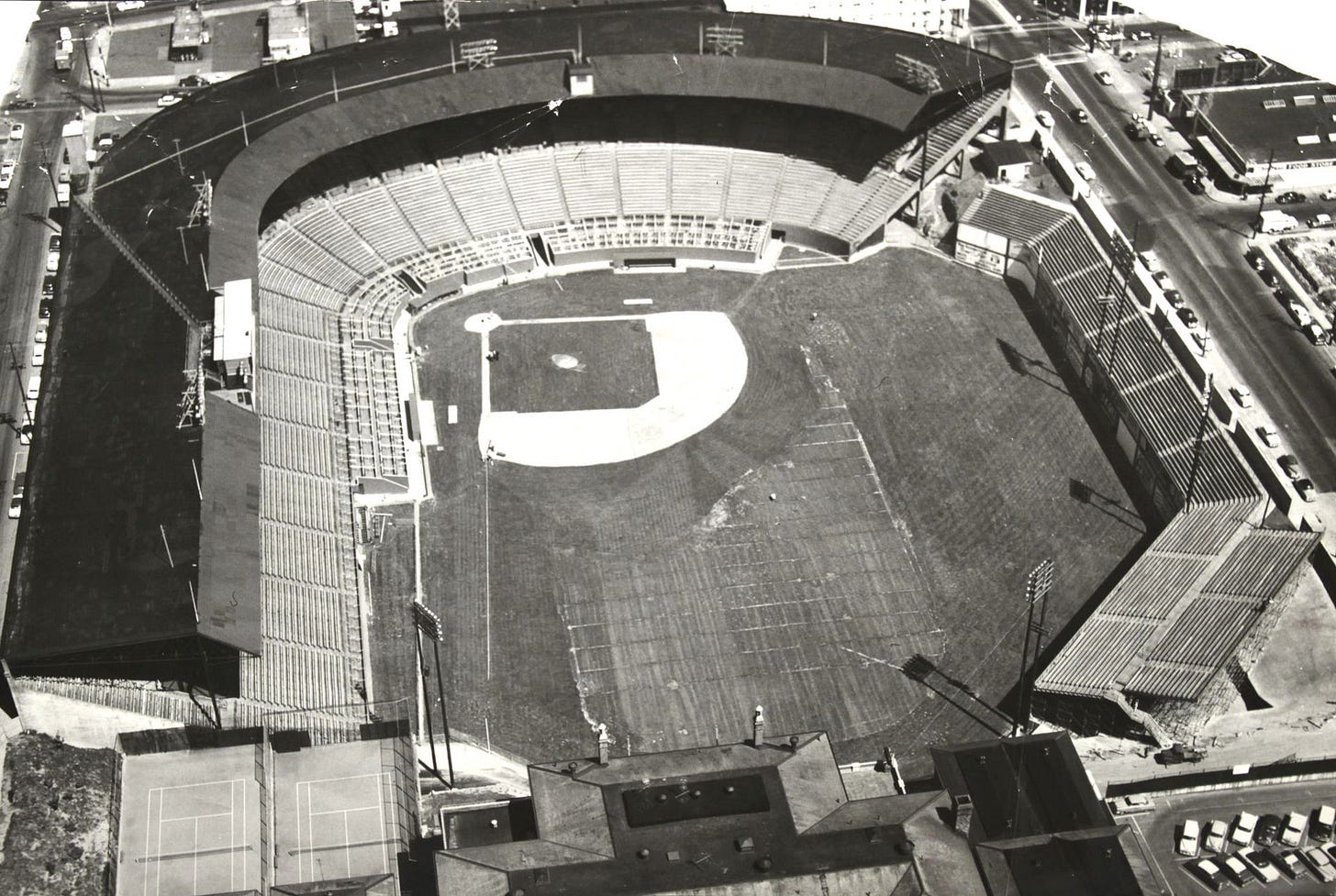
I remember those balls. The Booty Balls we’d call them.
Mom would just throw me and my brother and a couple other guys on the bus and we’d take the bus to Multnomah Stadium across the river. That was such a long time ago, I remember when Multnomah Stadium had grass.
What position did you play?
I pitched, but mostly I played outfield. Played all through high school. Grant High School. I went to University of Oregon. I did not play there. I went and watched them work out in the fall. and I'm like, this is too much time. I had a friend who had gone to school in Portland as well, at Benson High School, and he played for the Ducks and went on to actually play Major League some, but he told me how intense it was and how much time they devoted, and I was worried about flunking, let alone making a baseball team. I didn’t even give it a consideration. I wasn't that good, so softball was much more my speed. I umpired, too. I umpired high school games. One of my all-time great classes at the University of Oregon, Umpiring 301.
That was a class?
That was a class; I got credit for that. And once you got credit, you were certified, and I would do high school baseball in and around the Eugene area, which was interesting. You drive 60 miles out of Eugene to some of these towns where you got nothing but a bunch of unemployed loggers sitting around the baseball fields giving the long-haired umpires a hard time. I did that for a couple of years, I think my junior and senior years in college I umpired high school games, and I also always umpired a lot of intermural games at school. That was my job, so to speak.
So your career kind of took off when you got into it.
Yeah, I mean I had good timing. My mother used to say, thank God you found a job in TV and sports because those are the only two things you were good at as a kid: watching TV and playing sports. Yeah, it did work out pretty good. I had great timing. I started in cable business in 1981, right when it was taking off and if you had half a mind and kind of knew what you were doing, you were going to get moved up because it was growing that fast.
It's the same when we got to the sports side of thing. I knew the cable side of the business, I knew nothing about programming or production, but that was easily enough learned. I knew ad sales and I knew how to deal with cable operators, so it was very fortunate timing on my part. I'd like to say it was all some brilliant businessman, but it's right place, right time and not being afraid to take on more responsibility, probably in many cases more responsibility than I should have ever had at that age, and just run with it. It's kind of a business where if you show you can do it, you’re going to get the attention of people who want to have you and want to keep you around. And I was fortunate that throughout my 25-some-odd years, I worked for two companies. They had different owners and I probably had 25 different jobs with those two companies. There was a lot of moving around and it’s kind of the way it worked back in those days. Things are a little different these days.
You got a four-year degree. Did you go to grad school?
No.
You basically were educated in the business. As you advanced, it seems like a lot of uncharted territory.
Yeah, that's a good explanation right there.
So thinking about that, it used to be you got to the top because you knew the ins and outs of a whole industry. Now people go to school and they come out with MBAs and all that and they go straight into upper management.
That's right. We had a lot of MBAs at Fox. First of all, because of all my negotiations that I was involved in, and I did like 200 rights deals over my career, most people assume I'm an attorney. I'm not. I don't have anything against people with MBAs, but nothing replaces being in the trenches and doing the work. You can only learn so much in the classroom. Anybody who comes out of school, and I had to have this chat with MBAs on a couple of occasions, that comes out and thinks they know freaking everything just because they learned it in a book, I got news for you, that's not how it works. There's a lot of very smart kids who go to graduate school and I got nothing against graduate school. In my case, if I hadn't found a job, maybe I would have gone back, gone to grad school, but I found a job and it was a job that I liked and a business that I had always wanted to be in, the television business. And so at that point, I didn't see any reason to further my education anymore in a formal manner.
Well, it worked out. Were there any lessons you learned growing up playing baseball that helped you while you were in your career?
Baseball, I think the thing is that it's a nine inning game, and just because you might be behind in the first couple innings, there's always time for a comeback. And I looked at a lot of things in business the same way. Some things that we weren't sure were going to work, we went ahead and did it anyway. They weren't initially home run hits. Big 10 Network’s a perfect example. The first year we had very little distribution on the cable side. They were all boycotting us. But we hung in there and just kept grinding.
Right before kickoff of year 2 college football season, after having been threatened by virtually every university president in the Big 10 system, we were able to get on every cable system. We could have folded our tent that first year, but with the kind of the mentality that look, this is a good idea, this is a good team, we know what we're doing, we're going to get the carriage. We just got to wait it out and the hits will start coming. And sure enough that's what happened. And the rest is kind of… somebody wrote a book about it somewhere. I haven't read it yet, but I've been told there's a book about the Big 10, though.
So out of your 200 negotiations, are there any that stand out?
We were in Seattle and I also had some people in Charlotte. I was negotiating a deal with the Seattle Mariners, which at the time was probably the top rated Major League Baseball team out there in terms of ratings, people used to be crazy about Mariners baseball. This was like early 2000s; Ken Griffey Jr, Edgar Martinez and all those guys. They’d been threatening to start their own RSN and so I'm trying to explain to them why they shouldn't do that. We were at the at SAFECO and the president goes, let's take a walk. And we go walking out away from the other people, and we're out in the outfield, and he's basically telling me, look, we'll do the deal if you just go to this. And so we're walking and talking and I'm telling him, yeah, and then I look over and someone’s yelling at me from the press box of the stadium. And he’s going, “David's on the road in Charlotte and he needs to know if he should do this ACC basketball deal!”
So I'm out there with the president of the Mariners and we're just getting ready to shake on it. And I got my guy in Charlotte on the phone with another guy trying to put the finishing touches on the ACC basketball deal we've been working on with Raycom for like a year and a half. Both those deals got done within two minutes of each other. It was just bizarre. And a couple billion dollars later, we had the Mariners for 10 more years and we had ACC basketball for 7 years every Sunday night. It was a good walk around the warning track of SAFECO Field.
Here's another good one: 25 years ago was the tie game (at the All-Star Game). M y son and I are sitting two rows behind Selig at the game in Milwaukee. They ran out of players, right? So they had they decided to call the game a tie. My son, who was twelve at the time, he was incensed. He's standing up screaming, “There's no ties in baseball! Come on, Selig, what are you doing?” And I'm sitting there just going like this, Brian, sit down and shut up. It was pretty hilarious, but that's certainly one of the great parts of the job was I've been to events you could only imagine.
I went to every MLB All Star game for like 18 straight years and that's one of the fun things, being able to do that stuff, and especially because I always still found a way to be a fan, especially with baseball. I mean, I sat through a lot of hockey games I couldn't give a rat’s ass about, but I would go see baseball games. One of the great things was baseball used to give you a pass that allowed you and a guest to go to any park on any night in any city. And so if I was somewhere and I had nothing else to do, rather than sit in my hotel room, and there was a baseball game in town, I'd go to the baseball game. So I was always a fan of baseball and, I can't necessarily say that for other sports, but for baseball, it's just different to me. I have been able to attend the World Series and all the All-Star games and take batting practice at Fenway Park and stuff like that. As a kid growing up, if I had said that to somebody, they would have told me I'm nuts.
Are you right-handed or left-handed?
I'm left-handed, but I bat right-handed and play golf right-handed.
So the Green Monster, did that look too far away when you took BP?
I didn't get there. I rolled a couple up there. But the other thing we did that was fun was a guy hit fungoes off the Green Monster and we got to field them and try and throw guys out at second base, which was pretty fun.
That would be more fun.
Yeah, it really was. This was like the Monday morning of the All-Star week and it was great. That was in ‘99. That was the one where they thy introduced the greatest players of all time, they all came kind of Field of Dreams walking out of the wall.
Got the whole tour in the scoreboard, back in the scoreboard area where all these people have written stuff all over the walls. I was at Ripken’s game when he broke Gehrig's record. I've been to a bunch of games. I was at McGwire’s game when he hit his 63rd (in 1998). We never had the Giants, so I never really saw Bonds play a ton unless he was in town, and we never had the Cubs, so I never really saw Sammy that much. But yeah, I saw a bunch of McGwire games when he was on that tear that year. I represented Fox when we bought 15% of the Rockies, which we kept for about 8 years and then sold it back to the Rockies. I was involved with the purchase of the Dodgers when Fox bought the Dodgers. I was also involved in the McCourt bankruptcy when he about to put the team into receivership.
That was a nasty divorce.
It was a nasty case. And I was a witness for Fox in in the bankruptcy case in Delaware. That was fun. So you get the good with the bad.
You said baseball was different, how were you able to stay a fan even after being behind the scenes for years seeing how the sausage was made?
It's always kind of been my favorite. I like the pace of the game. I love playing basketball, too, and golf, but baseball I started playing when I was like seven, and it was just always there. It was just always something I did, and even growing up in Portland, where it rains half the time and you had more rain outs than sometimes games in the course of the season, it was just something that we always did. We always were playing on the corner or down at the park.
We were always playing baseball and we ‘d play it even when it wasn't baseball season. Sooner or later, we'd go over to football and basketball depending on the season, but we always played baseball the longest, and it's just something for me that it has always been there. And even when I was in college, I'd go to watch the Ducks play and I'd go to watch the Eugene Emeralds play, especially when they had dime beer night, always a big hit with the college guys. And it's just always something I did. I used to keep score at a lot of games. I like the intricacies of it, the thinking that goes behind it and it's not readily apparent to a casual viewer. So to me that's what for me makes it the number one sport in my book.
For those that don’t remember, Frank and Jamie McCourt owned the Dodgers from 2004 to 2012 after buying it from Fox. Then they got into a wild divorce with all kinds of outlandish details you can read about here: Vanity Fair: A Major-League Divorce. Just a reminder that there are no crappy sports teams, just crappy owners.
Also, he lived the dream as a baseball fan. Being at the 1999 All-Star game would’ve been the coolest. Just look at all the Hall of Famers legends that were there, either being honored on the All-Century Team or part of the actual All-Star rosters… and Pete Rose somewhere outside at an autograph table.
